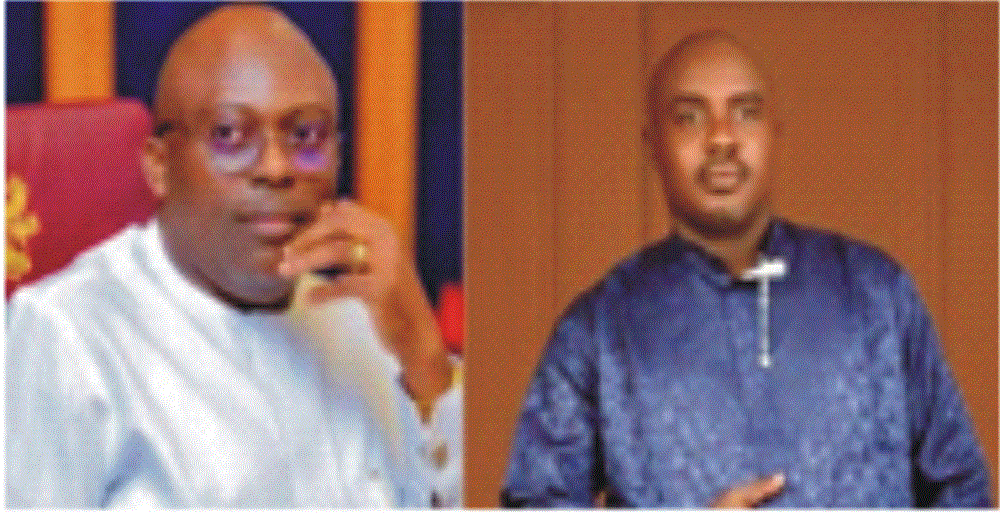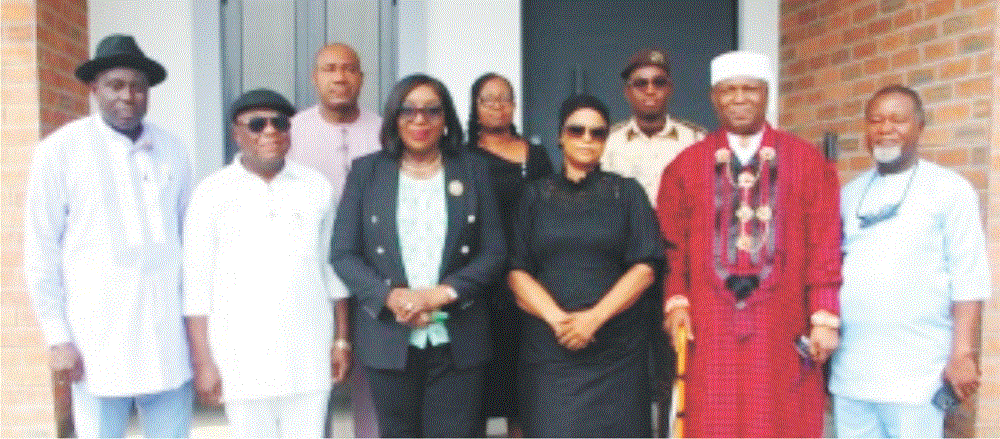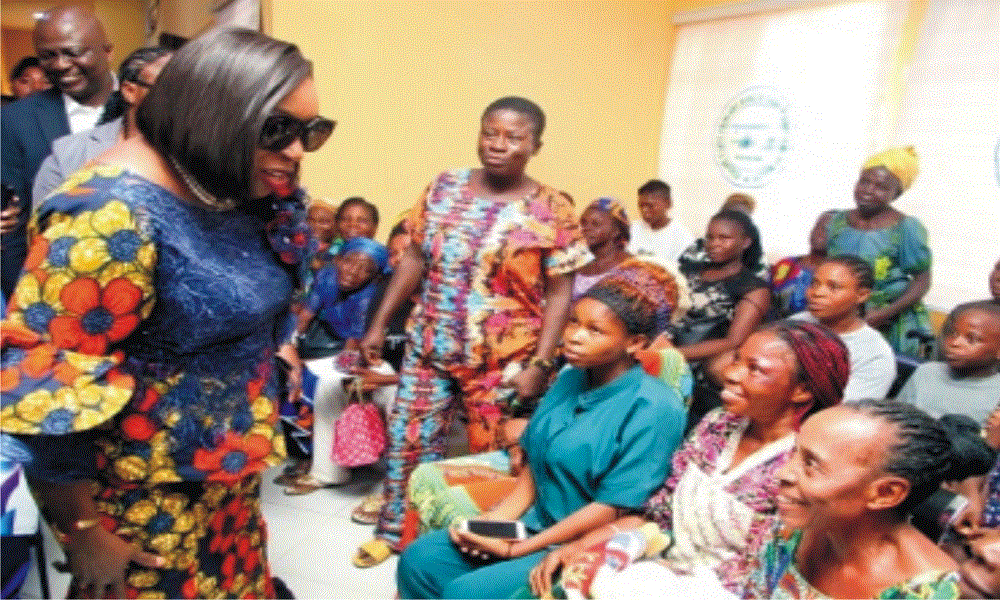Training For Care Of Children, Newborn Kicks Off In UPTH
In order to reduce infant mortality, the World Federation of Societies of Anesthesiologists, in conjunction with the Association of Anesthetists of Great Britain and Ireland has trained over 48 Specialist health workers from Rivers, Abia, Imo, Bayelsa, as well as Lagos and Kaduna States.
The training, according to Dr. Rosemary Ogu, a consultant Obstetrician and Gynecologist at the University of Port Harcourt Teaching Hospital and coordinator of the Course, is tailored towards improving the care of children and newborn babies, and was the first time the course has taken place in Nigeria.
SAFE is an acronym for Safer Anesthesia from Education. The Pediatric Anesthesia Course in Nigeria, is aimed at reducing pediatric mortality.
Dr. Rosemary Ogu added, “the training is supported by the University of Port Harcourt Teaching Hospital and the University of Port Harcourt and it is aimed towards ensuring better skills for service delivery.
Dr. Rosemary Ogu, who is also the facilitator of the initiative noted that the trained health workers consist of Anesthesiologists, Surgeons, and Pediatricians from different hospitals across the country, Nigeria.
“We have 48 participants from Abia, Bayelsa, Kaduna, Rivers, Lagos & Imo States. These participants come from different hospitals. They are being trained for enhanced skills in Pediatric Anesthesia. The course is an intensive 3-day hands-on training course which held from June 2th- 27th, 2019, at the University of Port Harcourt Teaching Hospital, Port Harcourt, Rivers State. The course started with a Training of Trainers (ToT) who facilitated the course involving 18 facilitators
On her part, Professor Christie Mato, a consultant Anesthetist & SAFE Course Coordinator, disclosed that majority of under 5 mortality is in Sub-Saharan Africa according to documentation.
The Professor of Anesthesia while commenting on the importance and usefulness of the training to practitioners, expressed the confidence that trained personnel will return to their hospitals with renewed zeal and skills to tackle the challenges of pediatric anesthesia, just as She urged parents to always act swiftly in responding to illness in their children by bringing them to the hospital on time, instead of resorting to self-medication, adding that quite often, late presentation to hospital was a major cause of mortality in children especially when the ailments were amenable to surgery.
“We hope this course will further empower practitioners and contribute towardsa reduction in under-5mortality in Nigeria” she said
“Our sad experience is that many times, when children are sick parents go to other places before they bring their children back to the hospital. By the time they get to the hospital, the child is already very ill. They should come to the hospital early, and endeavour to follow health workers’ instructions”, Professor Christie Mato added.
Also in their separate address, the representatives of the World Federation of Societies of Anesthesiologists from Britain, Larissa Latif and Joan Na Thirst of the Association of Anesthetists of Great Britain and Ireland, while rolling out the trained courses, expressed displeasure at the level some parents delayed medical support for their children.
“I was teaching them how to do Pediatric life support, that is when a child’s heart stops beating, we need to act fast, to ensure they have a good outcome, to make sure we give them chest compression, ventilate them artificially and while we are doing that we need to find out why the heart stopped. We went through several reasons why the child’s heart could stop and what we can do to correct and get the heart beating again. Sometimes it might be loss of body fluids, as when they have diarrhea. So we need to give them fluids and resuscitate Or it may be that they have severe pneumonia, we need to give them antibiotics, ventilation, artificial oxygen to correct that. Or they might have swallowed some toxin or been bitten by a snake, and we need to give them an antidote for that and correct it. I will advise mothers to learn how to do mouth-to-mouth resuscitation, do an advanced course on how to save a life. Everyone should know how to save a life by doing mouth- to-mouth resuscitation and chest compression, said Joanna”.
On his own part Lateaf said: “We have covered all aspects of Paediatric Anesthesia, starting from normal physiology considerations, special conditions such as burns, resuscitation. Anytime we make our Anaesthesia safer that is a benefit to the state. My advice to parents is that they should bring sick children to the hospital early as there are highly trained medical practitioners there. One of the biggest challenges health care providers face is the late presentation of medical conditions because people delay to seek help or remain at home in the hope that things will get better. I will encourage people to get treatment early at the first stage of it, they shouldn’t wait until they are seriously sick, else the doctors won’t be able to do much”.
They thanked the University of Port Harcourt and the University of Port Harcourt Teaching Hospital managements for hosting them to deliver the Safer Anaesthesia From Education Training.
Addressing newsmen, the council member of World Federation of Societies of Anesthesiologists, Dr Bisola Onajin-Obembe said, “We expect these skills and knowledge will be taken to their place of work. They will practice it as well as pass on these skills to their colleagues, and not only their colleagues but the whole team.
“Maternal mortality and infant mortality should be prevented; this course is an intervention in case there is a situation, where we will now carry out life support. we want all mothers and babies to be healthy”, Bisola stressed.
Speaking further, she pointed out that, “Moreso, where there is a need for intervention, these skills are there to help the sick child. I believe it will help in the long run to maintain the survival of mothers and children. Mothers should be vigilant, to know when there is a change in your children. Know when the normal pattern changes. Please, seek healthcare at the right time, and do not wait till things get complicated”, she advised.
Meanwhile, a statistics from WHO says approximately 830 women die every day during childbirth underscoring the need for more vigilance by mothers.




